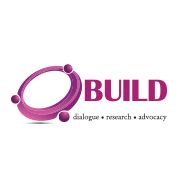
DHAKA, March 6, 2024 (BSS) - The Business Initiative Leading Development (BUILD) in association with National Board of Revenue (NBR) today organized a dialogue at its conference room in the city for analyzing different new provisions of customs related issues in the ‘Customs Act 2023’.
The Act has been prepared to include international best practices such as world customs organization (WCO) revised Kyoto Convention, WCO safe framework of standards and WTO Trade Facilitation agreement.
The new Act has 269 clauses which was 286 in the customs act 1969.
Dr S M Humayun Kabir, Member, Customs Audit, Modernization and International Trade, NBR was present as chief guest and said that change is a permanent issue, today’s dialogue is the beginning and after having similar frequent Dialogues mind sets of all concerned will be changed.
He referred some of the provisions of the new Act such as; consultations with the stakeholders before bringing any changes in the Act (section 262), AEO rules for the compliant traders, policies for voluntary disclosure (clause 171(2), release of products through self clearance (clause 90(3), extension of time refund application (clause 34) and said these are all for simplification of the procedures and better services to the entrepreneurs.
Md Abdul Kafi, former Commissioner of Customs Excise and VAT, NBR moderated the session and he highlighted some important historical perspective of the Customs issues from his long experiences of working in this area.
CEO, BUILD gave introductory speech and informed that there is a target of USD 111 billion exports by 2027 so Customs should be modernized to handle such a huge amount of export and import for the purpose of export.
NBR 1st Secretary Mr Raich Uddin Khan made a presentation highlighting different new provisions included in the Act. Some of the new provisions are; electronic declaration, risk management, Non Intrusive Inspection (NII), post clearance audit, advance ruling, National Enquiry Point, advanced passenger information etc for business simplification. Rules, manuals, procedures, SoPs will be prepared soon for implementation of the new act.
Farid Uddin, former Member, Customs Policy, NBR gave a broad outline of what more should be done for meeting the private sector need in the changed situation of business. He said that HS code is a long standing problem need to be resolved, EPZ, BEZA would need to be integrated with ASYCUDA, and suggested for a radical change in the customs procedures. He put emphasis on customs to customs cooperation, customs to other agencies collaboration and an effective single window for streamlining customs procedures.
Md Mamun- ur- Rashid Askari, Joint Chief, Bangladesh Trade and Tariff Commission joined as a Panel discussant and highlighted the TFA related issues and informed that there are different provisions of TFA, some are mandatory, some optional and some are best endeavor, so we need to be careful in handling priority TFA issues.
Manzur Ahmed, Adviser, FBCCI emphasized technological efficiency and introduction of Custom Valuation procedure along with TFA and WCO system.
Referring section 83 of the new Act on exchange rate, he suggested for simplification of the language and bring necessary reforms in that respect, also suggested for inclusion of private sector representatives in the NSW.
He echoed that there is a need for matching of scanner and weighing machine for quicker release of consignments.